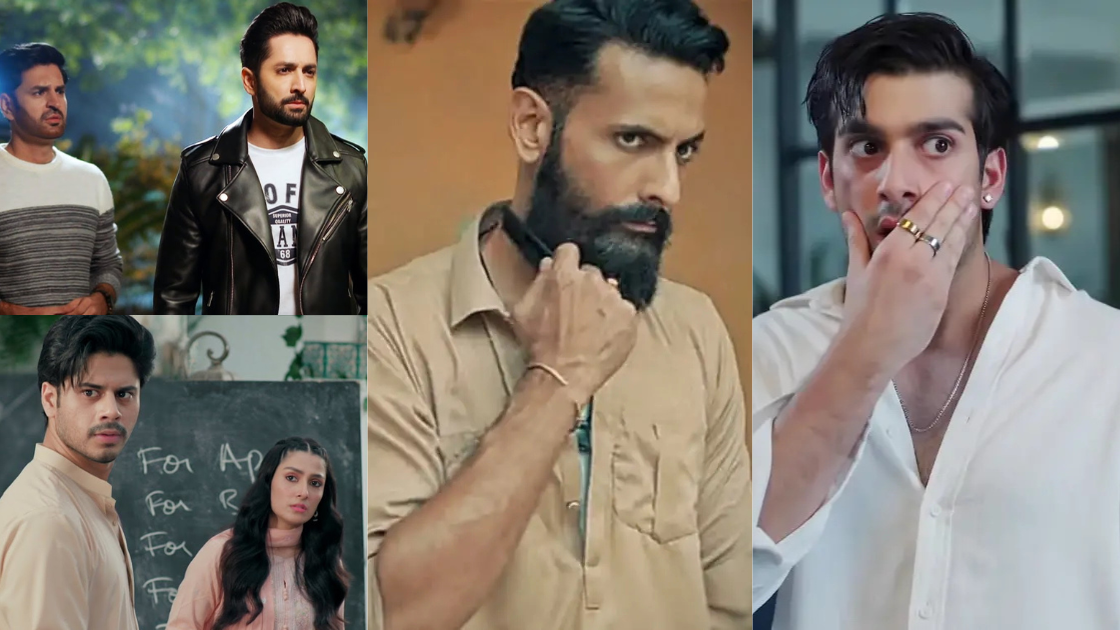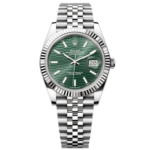In the glittering world of Pakistani dramas, the archetype of the “good guy” has long been cherished. He’s moral, loyal, and deeply family-oriented. But over the last decade, a new breed of characters has emerged from the shadows—dark, intense, flawed, and irresistibly magnetic. These are the bad boys of Pakistani dramas, and they’re stealing the spotlight like never before. From deeply conflicted anti-heroes to emotionally tormented villains, these characters have added thrilling complexity to storytelling—and audiences can’t get enough.
Contents
- 1 The Rise of the Anti-Hero in Pakistani Dramas
- 2 Why Bad Boys Are So Irresistible
- 3 1. Hamza Ali Abbasi as Afzal in “Pyaray Afzal”
- 4 2. Feroze Khan as Mir Hadi in “Khaani”
- 5 3. Imran Ashraf as Bhola in “Ranjha Ranjha Kardi”
- 6 4. Ahsan Khan as Imtiaz in “Udaari”
- 7 5. Bilal Abbas Khan as Wajih in “Cheekh”
- 8 6. Zahid Ahmed as Sameer in “Ishq Zahe Naseeb”
- 9 7. Faysal Quraishi as Bashar Momin
- 10 Bad Boys and the Female Gaze
- 11 The Role of Drama Production Houses in Creating Iconic Bad Boys
- 12 Talkandtrend’s Role in Shaping Cultural Commentary
- 13 Dark, Flawed, and Here to Stay
- 14 Explore More:
The Rise of the Anti-Hero in Pakistani Dramas
Historically, Pakistani television focused on clear moral binaries. Good was good. Evil was evil. But as global trends in storytelling evolved, so did local drama narratives. Today, characters are more layered, and the “bad boy” is no longer simply a villain—he’s the tormented soul, the misunderstood rebel, the broken man with a past.
This transformation owes much to the increasingly sophisticated approach of drama production houses in Pakistan: the powerhouses behind iconic TV shows. These studios are no longer afraid to dive into the grey zones of human behavior, and viewers are responding enthusiastically.
Why Bad Boys Are So Irresistible
There’s an undeniable allure to a man who plays by his own rules. Whether it’s his raw intensity, his painful backstory, or his passionate (and often toxic) romance, the bad boy archetype captivates viewers by presenting emotional contradictions. He can be harsh yet vulnerable, cruel yet deeply loving. These contradictions keep audiences hooked, always wondering what he’ll do next.
Let’s take a look at some of the most unforgettable dark charmers who redefined masculinity and stole the limelight.
1. Hamza Ali Abbasi as Afzal in “Pyaray Afzal”
One of the most iconic bad boys in Pakistani drama history, Hamza Ali Abbasi’s portrayal of Afzal took the country by storm. A rebellious soul with a heart of gold, Afzal was a small-town boy who found himself entangled in a world of crime, love, and redemption. His poetic nature, combined with a dangerous streak, made him an unforgettable character.
Abbasi brought an intensity to Afzal that made audiences root for him, even when he made morally ambiguous choices. It’s this duality—of danger and sensitivity—that defines the quintessential bad boy.
2. Feroze Khan as Mir Hadi in “Khaani”
If there was ever a character who perfectly embodied the brooding, obsessive bad boy, it was Mir Hadi. Feroze Khan’s portrayal of the aggressive, entitled political heir who falls in love with the sister of the man he murdered, was both shocking and magnetic.
Despite the deeply problematic premise, Mir Hadi became a fan favorite, sparking debates across the country. His emotional breakdowns, moments of repentance, and passionate declarations made him a character audiences loved to hate—or hated to love.
3. Imran Ashraf as Bhola in “Ranjha Ranjha Kardi”
Though not a traditional bad boy in terms of behavior, Bhola was an emotionally complex and mentally challenged character caught in a web of societal injustice and misunderstanding. Imran Ashraf’s haunting portrayal brought out Bhola’s inner turmoil and transformed him into a tragic hero.
Ashraf proved that not all dark charmers need to wield guns or break hearts; sometimes their emotional scars and traumatic pasts can make them just as compelling.
4. Ahsan Khan as Imtiaz in “Udaari”
Ahsan Khan took a huge risk playing Imtiaz, a character who was downright villainous. Yet his performance was so powerful and nuanced that it became one of the most talked-about roles in Pakistani television.
By playing a predator with a dual face—a loving husband on one hand and a monster on the other—Khan blurred the line between charisma and horror, leaving viewers disturbed but deeply engaged.
5. Bilal Abbas Khan as Wajih in “Cheekh”
Wajih was charming, privileged, and sociopathic. Bilal Abbas Khan’s performance was chilling in its subtlety. He played the entitled, manipulative murderer who hides behind his family name and status.
Wajih’s dangerous charm was what made him so terrifying—and fascinating. Khan’s acting ensured that viewers were glued to the screen every time Wajih appeared, simultaneously dreading and craving his next move.
6. Zahid Ahmed as Sameer in “Ishq Zahe Naseeb”
Dual personalities, psychological trauma, and a haunting past—Sameer was a cocktail of everything dark and disturbing. Zahid Ahmed played him with disturbing brilliance, showcasing how mental illness can manifest in dangerous ways.
This role wasn’t just about charisma; it was about exploring deep, uncomfortable truths. And yet, viewers were drawn to Sameer, sympathetic to his pain, and haunted by his journey.
7. Faysal Quraishi as Bashar Momin
Perhaps the most luxurious and enigmatic of all the bad boys, Bashar Momin was wealthy, controlling, and obsessed with power. Faysal Quraishi turned what could have been a one-dimensional villain into a tortured anti-hero.
His complex dynamics with love, family, and revenge were elevated by Quraishi’s commanding presence. Bashar Momin became a cultural phenomenon, and drama lovers still discuss him today.
Bad Boys and the Female Gaze
An important factor behind the popularity of these dark charmers is the shifting narrative focus toward female desire. These characters often represent what society discourages women from admiring—danger, rebellion, intensity. But in the safety of fiction, viewers can explore these fantasies without judgment.
Moreover, their emotional availability (however flawed) makes them fascinating. They suffer. They cry. They love with an intensity that’s rarely seen in “nice guys.” These bad boys, for all their chaos, are deeply human.
The Role of Drama Production Houses in Creating Iconic Bad Boys
The emergence of complex characters owes much to the vision of drama production houses in Pakistan: the powerhouses behind iconic TV shows. These entities have pushed boundaries, crafted deeper storylines, and dared to break moral conventions that once limited TV writing.
By investing in quality scripts, innovative direction, and multidimensional characters, these production houses have not only revolutionized storytelling but have also set new standards for male character development in South Asia.
Talkandtrend’s Role in Shaping Cultural Commentary
While the shows themselves create the stories, media platforms like talkandtrend have been instrumental in analyzing, celebrating, and critiquing these characters. From interviews and reviews to think-pieces and audience polls, talkandtrend has given fans a platform to discuss what makes these characters click.
By fostering digital dialogue and offering deep dives into drama psychology, talkandtrend has helped redefine how audiences consume and interpret Pakistani entertainment.
Dark, Flawed, and Here to Stay
Love them or loathe them, bad boys in Pakistani dramas have redefined the parameters of leading men. They reflect a shift in societal storytelling—one that embraces complexity over perfection. These characters challenge audiences to think, feel, and confront their own biases.
They also elevate drama from mere entertainment to a more introspective experience—where viewers don’t just watch, they wrestle with what they see.
As newer writers and actors continue to explore uncharted emotional territory, we can expect even more compelling dark charmers in the future. And with drama production houses in Pakistan continually raising the bar, the bad boy isn’t going anywhere—he’s just getting started.
Explore More:
If you’re fascinated by the psychology behind these characters and want to understand the creative forces that bring them to life, check out the leading drama production services in Pakistan and discover how powerful storytelling is shaping cultural discourse. Click here for more
Final Thoughts
The dark charmers of Pakistani television aren’t just characters—they’re phenomena. They’ve broken rules, challenged archetypes, and brought a whole new energy to our screens. Whether they’re driven by revenge, haunted by trauma, or trapped in moral grey zones, their stories resonate because they reflect the complexities of real human behavior.
And if current trends are anything to go by, these brooding anti-heroes will continue to reign—one smoldering look at a time.


